


#MARKiesAwards 2021 highlight: Visa SG draws SMEs to its platform with vertical videos
share on
During the first implementation of restrictions when the COVID-19 pandemic was on the rise, local businesses were hit hard. Visa Singapore and BBDO understood that small and medium-sized businesses accounted for 99% of all businesses in the country, and knew the recovery of these businesses was crucial to Singapore's economy.
Knowing that small and medium-sized businesses lacked knowledge about digitalising, Visa and BBDO tapped into various strategies and executions to empower those businesses via its #WhereYouShopMatters campaign. Through its campaign, Visa saw the volume of its website visit surpass the duo's expectations. The team's efforts saw them bagging the gold award for the Most Creative - Video at MARKETING-INTERACTIVE’s recent MARKies Awards 2021.
Challenge
With the restrictions during government-mandated lockdown periods and the over-reliance on physical transactions, local businesses were hit particularly hard during COVID-19. Since small and medium businesses (SMBs) account for 99% of all businesses in Singapore, their recovery will be crucial to the recovery of Singapore’s economy. Since COVID-19, 70% of Singaporeans have increased online purchases and mobile shoppers have also increased from 41% pre-COVID to an astounding 93% during COVID. It was recognised that for small businesses it was either to digitalise or perish. A fundamental tenet of going from bricks to clicks is the acceptance of digital payments. That’s where we can help.
While Visa provides a suite of tools for businesses of any size and stage to grow and adapt, many SMBs are still unaware of the transformative impact the Visa network can bring to their business. The success of its #WhereYouShopMatters campaign in the first phase of its marketing efforts had started to shift the perception of Visa and increased intention to use Visa solutions among small businesses. However, Visa knew that consistent and more focused efforts were required to see a noticeable uplift in Visa solutions uptake and usage.
When phase one of #WhereYouShopMatters was launched, Singapore was at the peak of the pandemic. Therefore, the focus of the first phase was about helping small businesses survive and recover from the loss of the disruptions. However, as Singapore emerged from the "crisis" state and progressively entered the new normal, Visa understood the importance to respond to the change in market sentiments quickly and shine a positive light on the current situation and the new opportunities post-pandemic. In light of that, Visa knew it must pivot its campaign message from "crisis recovery" to one that focuses on the new, positive business possibilities unlocked by the accelerated digital transformation during the pandemic.
The target audience were small business owners in Singapore. They are the food hawkers, designers, mom, and pop or mamak shop owners. Their shops are not just a business but are the heart and soul of the local neighbourhoods. These small businesses would have in the past seen digital payments as a potential inconvenience. These small businesses are not only important to Visa, but to Singapore and Singaporeans. According to the company, they are the backbone of thriving economies. While their sales heavily rely on physical transactions, as business owners, they tend to go online for research for new suppliers and business partners. Visa added that research shows 80% B2B buyers use mobile at work, and more than 60% report that mobile played a significant role in a recent business decision. With that, it was known that its campaign should be a mobile-first campaign with precise audience targeting, focusing on owners of local small businesses.
Strategy
Since COVID-19, Singapore consumers’ preference for eCommerce over physical payments has grown significantly, with 70% saying their online payment had gone up in 2020. This shift was particularly profound on mobile. With the flourishing mobile shopping apps like Lazada and Shopee, mobile shoppers have increased from 41% pre-COVID to an astounding 93% during COVID. However, Singapore small businesses are still heavily reliant on its physical stores. Less than SG$2 per SG$100 of goods sold by local brands were transacted online, which is 92% lower than the retail average. Although more small businesses have started to see the value of moving business online amidst COVID disruptions, many of them considered it as a short-term fix during social distancing and don’t see the value in investing in establishing a long-term online presence.
For those who do see the importance of eCommerce, Visa said only very few have the resources or know-how to make the transformation. As a leading payment innovation brand, Visa understood that for these small businesses to thrive and grow their businesses in the new normal, going online is inevitable. To help Singapore small business owners to understand the values of eCommerce, particularly mobile commerce, Visa must show the transformative impact of bringing small businesses online and provide the resources and tools they need to do so. It was known that digital videos would be the core of this campaign but with countless branded videos in the market and limited budget, Visa needed to cut through the clutter and capture audience's attention.
While most branded videos are designed for horizontal screens, 94% of its mobile usage is vertical. In fact, major social and video platforms such as Facebook, YouTube and LinkedIn all have introduced vertical video format in the past two years to provide a more intuitive content experience. With that, instead of using an awareness-driven cinematic approach, it was decided to hone in on the small but highly impactful format, vertical videos that is mobile-by-design. Introducing "9x16 Stores", a vertical video campaign showing the limitless potential a nine by 16 mobile screen can unlock, when they bring their small shops online with Visa.
Execution
To show small business owners the value of moving business online, Visa and BBDO created a vertical video idea that smartly uses the narrow mobile screen to dramatise the small and cramped physical space of common local shops. In just a second, with the support from Visa, these nine by 16 small shops instantly transformed into an online business with limitless growth opportunities. It created different versions according to the most common types of small shops in Singapore – mamak shop, plant shop and tailor store.
It then served these three versions on rotation, targeting small business owners in Singapore on different social and digital platforms. Each vertical video ended with a strong call-to-action to visit Visa Small Business Hub to learn more about how Visa can help bring their business online. Provide practical tools and resources on Visa Small Business Hub To enable small businesses to transform their business digitally, all audiences would be directed to Visa Small Business Hub where Visa provides tips and tools that could equip small businesses with the resources and advice they need to start bringing their business online.
Another goal for the Hub is to generate leads for the Visa sales team. To motivate small business owners to share their data for follow-up, it designed an eCommerce starter kit for them to sign-up and download easily on the Hub. Supported by sustaining content from #WhereYouShopMatters. While the vertical videos are the key assets, the campaign was supported by sustaining social content and small business testimonial videos created for #WhereYouShopMatters phase one.
Results
Overall, it achieved big success in reaching its objectives, all mainly through nine by 16 small videos. It built awareness of Visa Small business solutions, on Instagram stories, the "9x16 Stores" vertical videos garnered 10,132,513 impressions in totality with 578,727 through plays, and on the programmatic advertising platform, the videos achieved 65.62% view-through-rate and 0.15% click-through-rate which is 60.62% and 0.13% higher than industry average respectively. It also triggered interest in Visa Small Business solutions.
With just a fraction of the media budget of phase one and with a niche small business owner audience segment, Visa expected a much lower volume of website visit versus the previous phase. It surprised the agency when it saw it had garnered more than 80k of visits to Visa Small Business Hub, which is equivalent to 70% of total visits in phase one of the campaign. There was also a total of 138 small businesses sign-up to redeem Visa eCommerce starter. It also saw increased Visa solutions uptake and usage. During the campaign period, Visa successfully got 106.9k new small businesses to start using Visa solutions.
share on
Free newsletter
Get the daily lowdown on Asia's top marketing stories.
We break down the big and messy topics of the day so you're updated on the most important developments in Asia's marketing development – for free.
subscribe now open in new window
